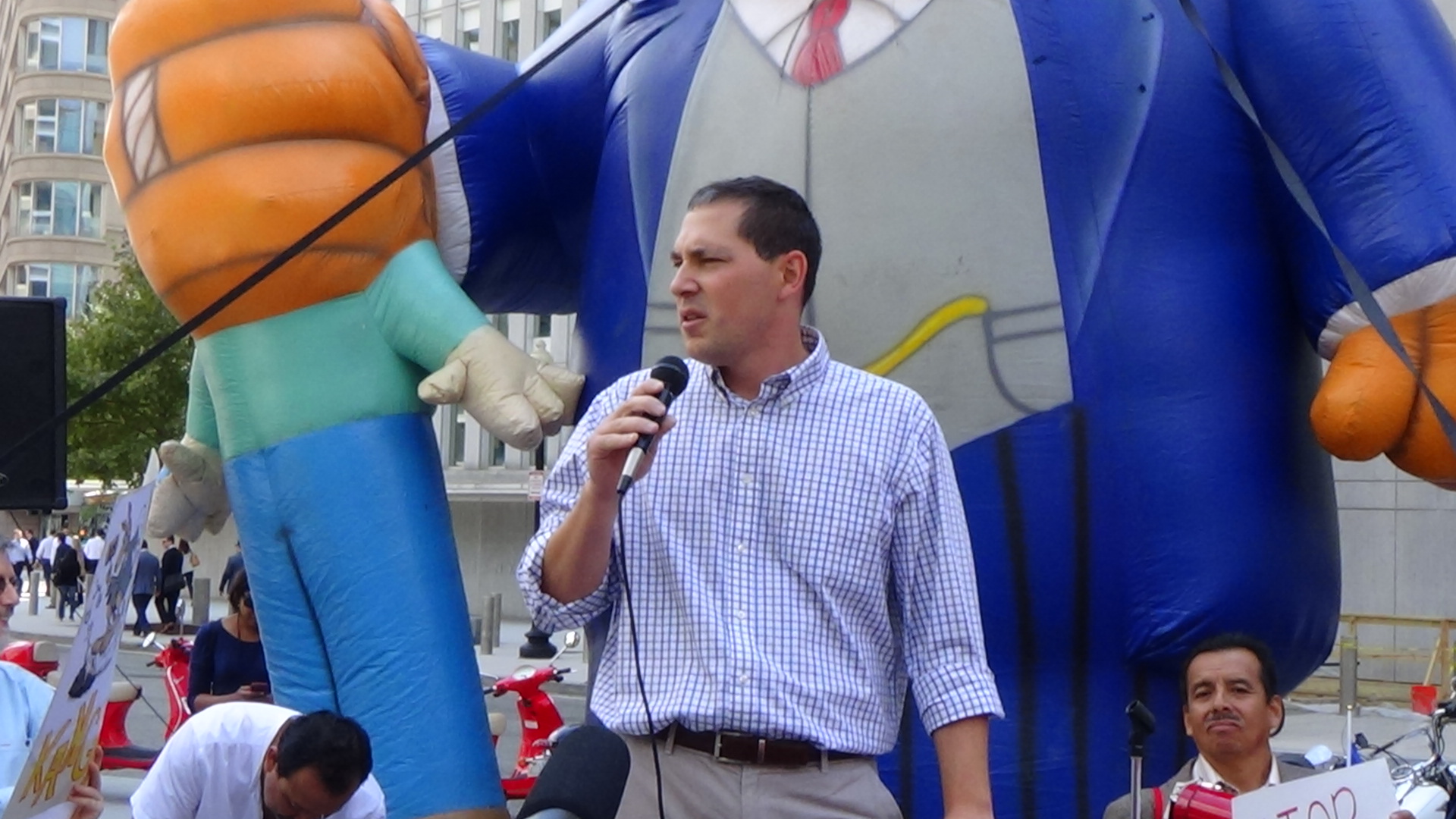- Blog
- Sustainable Economic Systems
- Trade
- The Pac Rim decision: What are the lessons for TPP?
The Pac Rim decision: What are the lessons for TPP?

Donate Now!
Your contribution will benefit Friends of the Earth.
Stay Informed
Thanks for your interest in Friends of the Earth. You can find information about us and get in touch the following ways:
On October 14, 2016, an Australian–Canadian mining company OceanaGold/Pacific Rim (Pac Rim) lost a $301 million dollar suit against the people of El Salvador before a tribunal associated with the World Bank. Pac Rim alleged that El Salvador violated investor rights when it was not able to open a dangerous cyanide-leach gold mine at the basin of the Lempa River.
The story of the Pac Rim case is disturbing. As a result of public pressure stemming from environmental and public health concerns, Pac Rim was denied a permit to mine at the basin of the Lempa River by the El Salvador government — leading Pac Rim to sue. What the company ignored was that the river is the source of more than 60 percent of the water in El Salvador.
Salvadorans opposed to the Pac Rim gold mine were threatened and attacked. For example, in three separate incidents in 2009, Gustavo Marcelo Rivera was tortured and murdered, Ramiro Rivera and Felicita Echeverria were brutally killed, and Dora Alicia Recinos Sorto, eight months pregnant, was murdered and her small child injured.
Pac Rim should never have been allowed to engage in this kind of legalized shakedown attempt. But there is an explosion of such suits around the world. The cost of these investor-state suits is also skyrocketing.
These suits are brought mostly under the terms of trade or investment deals like the Trans Pacific Partnership that Congress may vote on after the 2016 election. The TPP would allow firms to turn to secretive international tribunals where they can sue governments for millions or billions of dollars if environmental or other public interest regulations interfere with expected future profits. TransCanada, for example, is using a similar provision in the North American Free Trade Agreement to sue the U.S. for $15 billion for stopping construction of the Keystone XL pipeline.
Friends of the Earth President Erich Pica summed up all that is at stake: “We serve as witnesses, today, to the courage of the people of El Salvador, who in the face of threats, violence and murder, carry on the struggle against gold mining that endangers the water they drink and the sustainability of their farms. And we call also for the end of unjust trade deals, including the pending Trans Pacific agreement, which gives ‘super-rights’ to multinational corporations.
Read the full Friends of the Earth analysis here.
